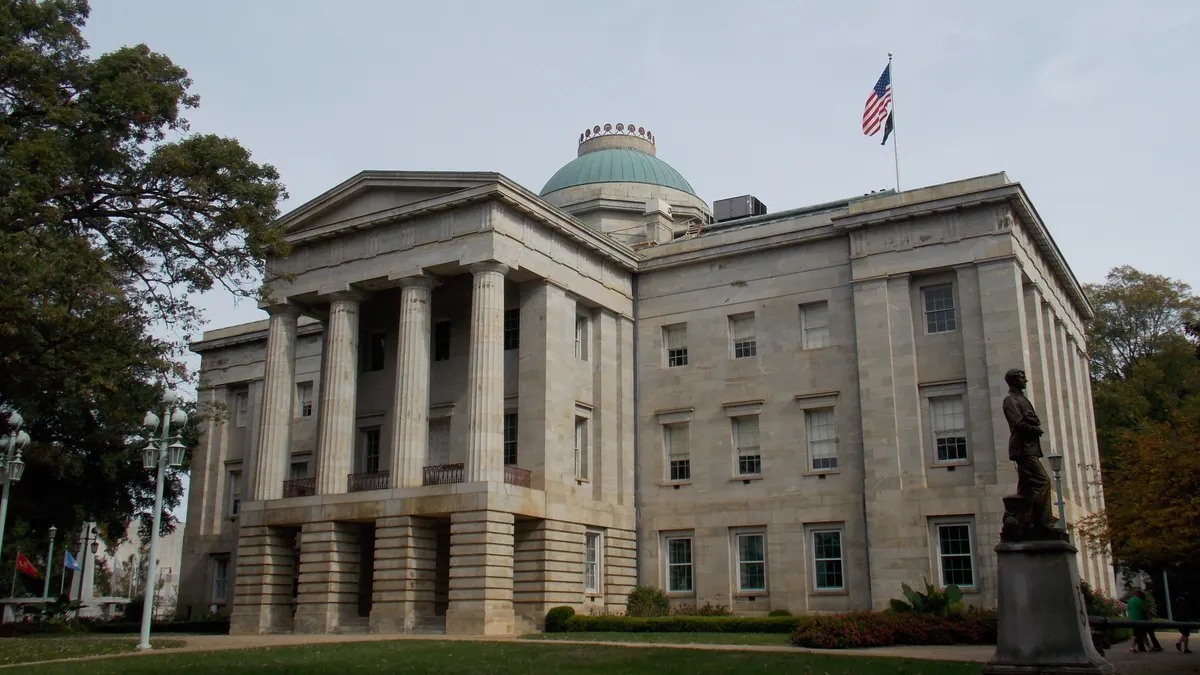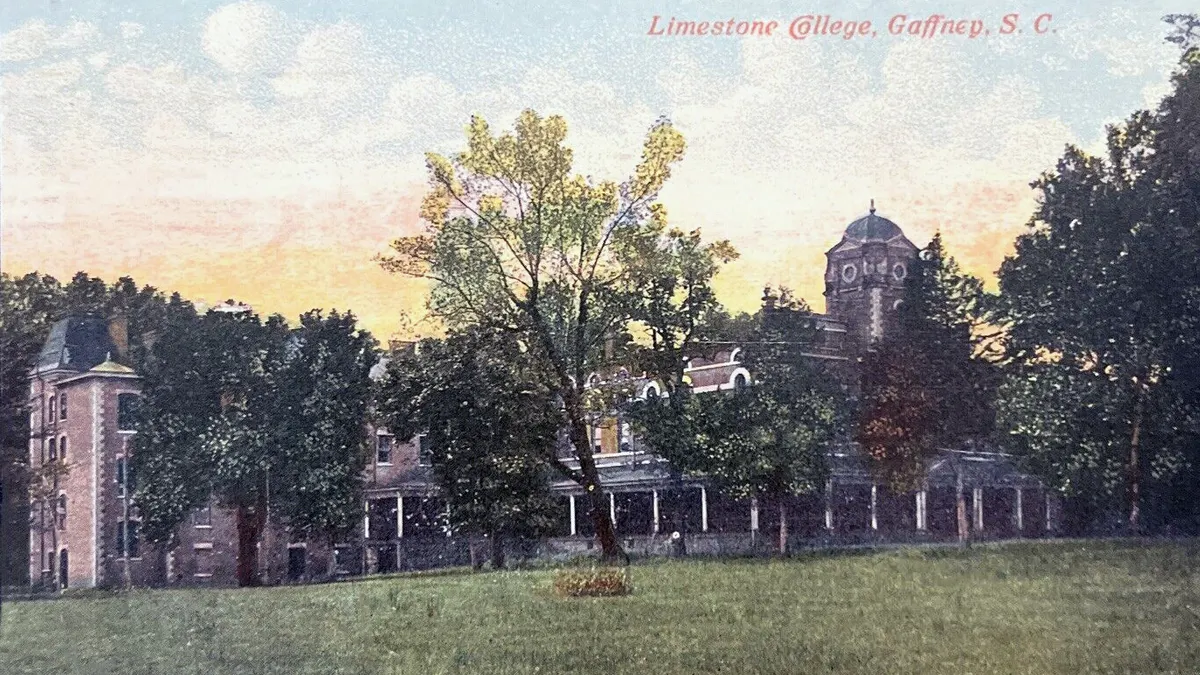Dive Brief:
- Members of the University of North Carolina System’s governing board would no longer be elected by state lawmakers under a bill that is spurring concerns of partisan interference.
- Currently, lawmakers pick a slate of prospective board members, one or more of whom are then elected either in the North Carolina House or Senate. Under proposed legislation, the appointment process would shift most of that power to the House speaker and Senate president pro tempore, both of whom are currently Republicans.
- The two leaders alone would select board members, who would then be approved by the North Carolina General Assembly. The bill also would broaden the number of seats on UNC’s board from 24 to 28.
Dive Insight:
Republicans have tightly controlled public college governance in the state since claiming both chambers of North Carolina’s legislature more than a decade ago. Before that time, lawmakers ensured an ideological mix on the UNC system board. But since Republicans took charge, they have largely installed only conservatives to the panel.
This shift has brought accusations from faculty, alumni and even lawmakers that Republicans have meddled too heavily in public institutions’ affairs.
Similar fears have arisen around the new bill, which passed the House last month and is once again under consideration by the Senate. One state Democrat told local press that her political party has effectively been locked out of the appointment process and that the newly proposed method of picking board members is more opaque.
Nevertheless, the bill appears poised to pass the Republican-dominated body.
Whether the state’s Democratic governor, Roy Cooper, will look on the bill favorably is less clear. But late last year he formed a commission that is studying how to improve appointments of governing board members. At the time, Cooper said the UNC system had been plagued by “undue political influence.”
Critics have often pointed to policymakers’ involvement in operations of the state’s flagship institution, the University of North Carolina at Chapel Hill. In 2021, the university’s students, faculty and alumni formed a coalition aimed at ridding the college’s governance of partisan politics.
In recent years, accusations of political interference came when the UNC-Chapel Hill attempted to reopen the campus during the COVID-19 pandemic in 2020 but seemingly tailored the process to policymakers' wishes.
And in 2021, the Chapel Hill board initially declined to grant tenure to Nikole Hannah-Jones, a Pulitzer-Prize winning journalist who led the 1619 Project, an account of how slavery shaped contemporary U.S. culture.
Press reports unearthed how big conservative names, like a mega donor to the Chapel Hill campus, objected to Hannah-Jones’ work. Though the board eventually awarded her tenure, Hannah-Jones opted instead for a tenured position at Howard University, a historically Black institution in Washington, D.C.










